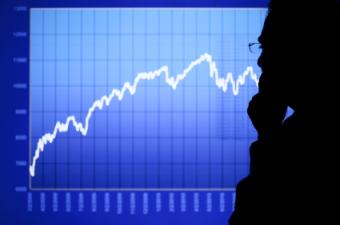Are indices incorrectly misleading the market regarding the rise of house prices?
[IMAGE]""Yes"" is what the market appears to be saying when it comes to rising house prices. But is there more to what the indices suggests than meets the ""aye?"" A recent U.S. Housing Market Update from ""Capital Economics"":https://www.capitaleconomics.com/ suggests that the information reported in indices may not exactly measure up.
Data reveals that the decline of distressed sales is in fact having an upward impact on house prices, yet that information alone does not appear to be enough evidence to convince market experts that house price indices' failure to adjust for this result is in essence marring the ""real"" rate of house price appreciation.
For instance, while both the ""Case-Shiller"":https://themreport.com/articles/case-shiller-indices-near-5-year-high-2013-07-30 20-City index and the ""CoreLogic"":https://themreport.com/articles/price-gains-stay-on-fast-track-in-may-2013-07-02 index revealed house prices increasing upwards of 1 percent in May, and 12.2 percent throughout the last year, there have also been claims that perhaps [COLUMN_BREAK]
these indices have been exaggerated or inflated due to the way that foreclosure resales are calculated into the equation alongside home prices. The ""Zillow"":https://themreport.com/articles/us-home-value-appreciation-picks-up-speed-in-q2-2013-07-23 house price index, in light of this hypothesis, shows a much more moderate rise by just 5.8 percent year-over-year.
And yes, it certainly does appear that the share of distressed sales had an impact on the rate and direction of house price shifts in the recent years, mainly that the decline of such sales particularly in 2009 aided a house price increase, yet this impermanent improvement simply shifted right back following the rise once again of distressed sales. Hence, the maintainable rise in house prices finds itself situated alongside a major drop in distressed sales shares.
Despite the claims of exaggeration, it is not entirely conclusive that the main indices are in fact over-egging the ""true"" rate of price appreciation, as even though distressed sales can push prices away from the buyers and sellers of a market, they have also undoubtedly laid the foundations for the housing market's mend as they provide an opportunity for investors to purchase homes at bargain prices, which in turn aids housing recovery. Likewise, though, the most recent dip in distressed sales has also catapulted housing towards healing.
Both sides considered, this entire issue may come down to what is often known as a red-herring, with some indices including distressed sales data as others exclude it. Bottom line remains that house prices are expected to grow and then slow as 2014 is ushered in. Such a slow down in house price appreciation would indicate a sustainable nationwide house price recovery is right at our fingertips.

 theMReport.com Your trusted source for mortgage banking news
theMReport.com Your trusted source for mortgage banking news









